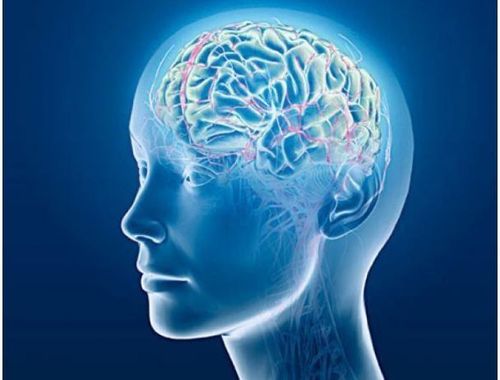Health issues do not discriminate by age. In fact, an increasing number of young people are experiencing memory decline at varying levels. Understanding the causes of memory decline in young individuals is an effective way to develop preventive measures, enhance neurological health, and support efficient memory recovery.
1. What is Memory Decline?
Memory decline refers to the impairment of brain function or the disruption of the process by which information and memories are transmitted to the cerebral cortex. This condition is also known by various terms such as cognitive decline, memory impairment, memory loss syndrome, or cognitive dysfunction. Regardless of the terminology, all describe the gradual deterioration of brain function and memory over time.
Recent studies have shown that 85% of individuals under the age of 50 experience at least one issue related to poor memory. Among them, 20–30% are under the age of 30, while the remaining cases are concentrated in middle-aged groups. These statistics highlight a concerning reality, as up to 50% of memory decline in young individuals progresses to dementia in older adults, with Alzheimer’s disease being a significant factor in these cases.

2. Causes of Memory Decline in Young People
2.1 Free Radicals in Metabolic Processes
One common cause of memory decline in young people is the impact of free radicals, which are generated during the body's normal metabolic processes. These free radicals often target lipid-rich tissues, particularly the brain, which contains 60% of the body's lipids.
In young individuals, the high metabolic activity produces more free radicals, increasing the risk of damaging nerve cells. This risk is exacerbated by the consumption of fast food, high-calorie meals, stimulants, or when the body is under stress, sleep-deprived, or exposed to other harmful conditions. Over time, these factors can damage the brain and result in memory decline.
2.2 Memory Decline Due to Depression and Stress
Young people often face significant pressures from work, studies, and environmental pollution, making them prone to stress. Chronic stress strains the nervous system, directly affecting cognitive centers in the brain. It slows reaction times, hinders concentration, and makes problem-solving more challenging, leading to scattered thoughts. Prolonged stress can impair brain function and gradually deteriorate memory.

2.3 Sleep disorders
Sleep plays a crucial role in overall health. It is the time for the body to rest, regenerate energy, and eliminate toxins. During sleep, brain waves are generated to store information, transferring it to the prefrontal cortex, where memories are preserved.
Lack of sleep or insufficient sleep disrupts the flow of information to the prefrontal cortex, leading to short-term memory loss or forgetfulness. The recommended amount of sleep for most individuals is 7–8 hours per day, with good quality sleep being deep, refreshing, and free from external disturbances.
To achieve quality sleep and effectively store memories, it is essential to reduce stress and pressure, maintain a balanced diet, adopt healthy exercise habits, and limit or avoid stimulants such as alcohol, coffee, and tobacco. By doing so, the brain can recover, stress can be alleviated, and the risks of brain damage and memory decline can be minimized.
2.4 Work overload
When the body is tasked with managing too many responsibilities simultaneously, the brain becomes overworked, which is a common cause of memory decline in young people. The best approach is to focus on one task at a time, organize work effectively, and avoid handling multiple issues simultaneously to reduce the risk of memory impairment.
2.5 Nutritional deficiencies
Nutrition is an essential factor for maintaining a healthy brain. Issues such as iron-deficiency anemia can cause fatigue, dizziness, and pale skin. Combined with life pressures, these factors may contribute to memory decline in young individuals.
Additionally, the deficiency of certain minerals, particularly B vitamins (B1 and B12), can negatively affect memory. Vitamin B1 plays a crucial role in producing neurotransmitters, which influence mood, memory, and cognition. A lack of vitamin B1 can lead to Wernicke-Korsakoff syndrome, causing short-term or long-term memory loss.

3. How Does Memory Decline Affect the Lives of Young People?
Studies show that nerve cells begin to degenerate after the age of 20. Starting at age 25, up to 3,000 brain cells die each day without being replaced. Meanwhile, external factors and internal free radicals exacerbate neuronal degeneration, negatively impacting memory and affecting the lives of young individuals.
3.1 Impact on Work
Young people with memory decline often become distracted and lack focus in their studies or work. Impaired memory reduces their ability to think critically and solve problems effectively. As a result, they tend to respond slowly and struggle to meet the demands of work or study tasks.
3.2 Impact on Daily Life
Memory decline can manifest in daily life through simple mistakes, such as forgetting to bring money when shopping or failing to turn off the lights before leaving the house. Over time, these issues may lead to changes in mood, behavior, and emotions. Individuals with memory decline often become irritable, which can strain relationships with those around them.
3.3 Impact on Health
Experts confirm that if memory decline in young people is not addressed in a timely manner, it can progress to dementia within three years.
At that point, the brain gradually loses its ability to control vital functions, severely impacting health and potentially leading to death. Once dementia sets in, brain cells become damaged and cannot recover, leading to issues such as cell death, brain atrophy, damage to cerebral blood vessels, or injury to white matter.

4. Treatment for Memory Decline in Young People
When memory decline is not yet severe, early intervention is essential to prevent further progression. The most important step is to adopt healthier lifestyle habits:
Exercise: Regular physical activity is beneficial as it promotes circulation, respiration, and increases oxygen and nutrition supply to the brain.
Stress Management: Limiting stress and its causes – the leading factors behind memory decline. Practices like meditation and yoga can help improve mood. These gentle physical activities promote blood circulation, especially to the brain, and enhance nervous system function.
Balanced Nutrition: Reduce consumption of foods high in carbohydrates, sugar, and stimulants such as alcohol, tobacco, and soda. Instead, incorporate nutrient-rich foods that support brain health, such as fatty fish (rich in omega-3), foods high in B vitamins (e.g., mushrooms, dairy, whole grains), and foods rich in choline found in poultry eggs.
Memory Exercises: Engage in brain games for 15-30 minutes a day instead of spending excessive time on social media.
To arrange an appointment, please call HOTLINE or make your reservation directly HERE. You may also download the MyVinmec app to schedule appointments faster and manage your reservations more conveniently.








